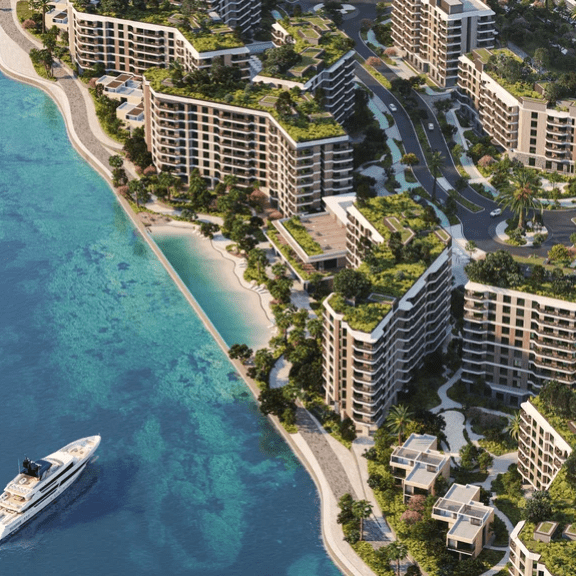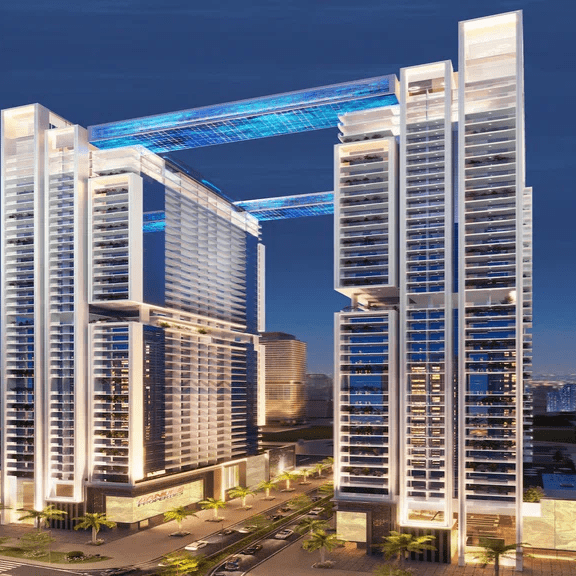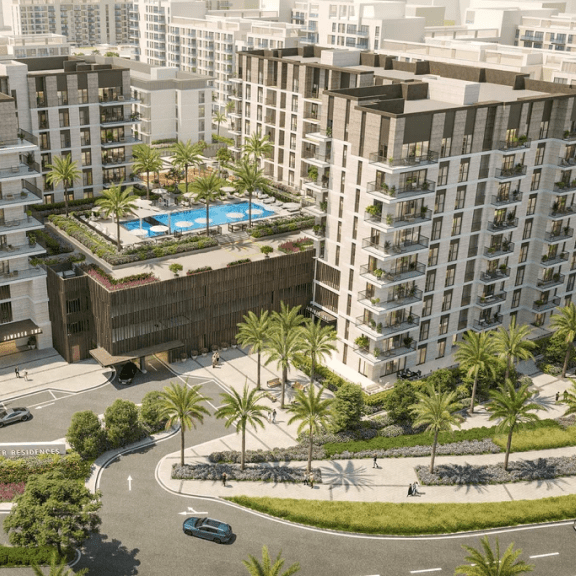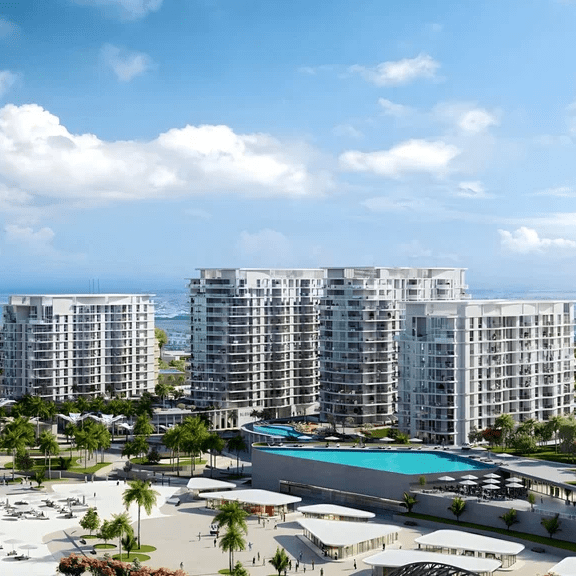Dubai is a city of expatriates, drawn here to work and live from all corners of the world. Overall, living in Dubai can be quite expensive. Expatriates with lower incomes may need to adopt a more frugal lifestyle, while those with higher incomes often opt for budget-conscious choices and sustainable consumption. On the other hand, some individuals indulge in a luxurious lifestyle, residing in upscale properties, dining at expensive restaurants, and shopping at branded boutiques. If you're contemplating a move to Dubai, it's beneficial to familiarise yourself with the primary monthly expenses and assess how they align with your budget in advance.
Read on to find out about the cost of living in Dubai for a couple.
Housing
Renting
Expatriates who are unable to purchase real estate in Dubai often opt to rent a house or apartment. In some cases, the expatriate's employer may offer a housing allowance to assist with these costs. Otherwise, the expenses must be covered from one's personal funds. Naturally, housing expenses constitute the most substantial portion of an individual's budget.
In the UAE, tenants typically have the following responsibilities:
- Make a one-time payment for rent covering six or twelve months.
- Pay a 220 AED ($60) fee for registering the lease through the online EJARI service.
- Pay a security deposit to the property owner equivalent to 5% or 10% of the annual rental rate.
- Pay a commission fee to the real estate agency, ranging from 2% to 5% of the annual rental rate.
When it comes to rental rates, they vary depending on the type of property and its location. A luxury apartment in a central Dubai high-rise building will be more expensive than an apartment located on the outskirts.
There are some relatively affordable areas for individuals seeking more budget-friendly rental options. For instance:
- In Deira, you can rent an unfurnished studio for approximately 15,000 AED ($4,000) per year. Furnished one-bedroom apartments start at 42,000 AED annually ($11,400).
- Bur Dubai offers unfurnished studios for around 16,000 AED per year ($4,300), while two-bedroom apartments cost 36,000 AED annually ($9,800).
- Dubai Sports City has studios for rent at approximately 26,000 AED per year ($7,000), while two-bedroom apartments in this area are priced at 42,000 AED per year ($11,400).
- In Dubai Silicon Oasis, rental rates for studios are around 24,000 AED per year ($6,500), and you can find two-bedroom apartments for 45,000 AED per year ($12,200).
- For those considering International City, a studio typically rents for an average of 21,000 AED per year ($5,700), while more spacious three-bedroom apartments cost around 80,000 AED annually.
Rental expenses should also factor in the cost of furniture, which can be a significant part of your budget. While some flats, particularly in upscale areas, come fully furnished with household appliances, there is a more abundant supply of unfurnished or partially furnished flats on the market. Experts estimate that it costs around 10,000 AED ($2,700) to purchase all the necessary furnishings for an apartment, including furniture.
Photo: Toa Heftiba (Unsplash)
Purchasing
Purchasing real estate in the UAE grants you the right to obtain a two-year residence visa, which can be extended subsequently. This type of visa is granted to individuals who own properties valued at a minimum of 750,000 AED ($204,100). Additionally, five- or 10-year golden visas are available for those who invest in properties worth 2,000,000 AED ($544,500) or more.
Foreigners can attain full property ownership exclusively in freehold areas. Dubai boasts more than 60 freehold areas, encompassing popular neighbourhoods like Downtown, Dubai Marina, Palm Jumeirah, Business Bay, and others. Leasehold areas also exist, allowing foreigners to rent real estate on a long-term basis, for up to 99 years. In these instances, foreign tenants do not possess ownership rights. Consequently, they may only lease the property to another party with the explicit consent of the property owner, who must be a citizen of the UAE or another Persian Gulf country. Nonetheless, leasehold properties tend to be more cost-effective, and lease extensions are generally an option. Nevertheless, expatriates typically prefer residing in freehold areas.
Several factors contribute to real estate prices in Dubai:
- Property Type: Whether it's a studio, a spacious flat, a townhouse, or a villa.
- Property Size: This includes the total area and available amenities such as a garden, parking, or swimming pool.
- Location: Properties located in affordable or prestigious areas, proximity to the sea, and other factors influence prices.
- Infrastructure: The quality of the residential complex's infrastructure, including landscape design and amenities like gyms, pools, playgrounds, etc.
- Transport Accessibility: The convenience of roads in and out of the complex and the availability of public transport also impact property prices.
Buying off-plan real estate is a popular option as it tends to be more cost-effective than flats in completed buildings. However, it may not be suitable for those in need of immediate accommodation. In such cases, purchasing a ready-made property is advisable, as these units typically come fully finished, furnished, and equipped with appliances.
One-bedroom flats are among the most popular residential properties in Dubai, with options ranging from 30 to 70 square metres in size. These flats can also be found on the secondary market. For example, prices for flats in the Surf Creek Beach residential complex in Dubai Creek Harbour start at 900,000 AED ($245,000), while units in Merano Tower in Business Bay are available from 680,000 AED ($185,000). Luxury flats in areas like Palm Jumeirah have higher starting prices, typically around 950,000 AED ($250,000), while similar units in Downtown Dubai start from 600,000 AED ($163,000).
Many foreigners opt to rent villas in Dubai, and there's a range of options available. It's not just elite villas; you can find relatively affordable houses starting at a minimum of 1.25 million AED ($340,000). Dubai also offers various townhouses to suit different budgets, with prices starting at 735,000 AED ($200,000). On average, townhouses typically cost between 1.5 million and 2 million AED ($408,000 to $545,000).
You can purchase a house with a mortgage in Dubai, but there are certain requirements to meet. To be eligible for a mortgage, you must be between 21 and 65 years old, have a resident visa, and provide proof of income. The minimum down payment required is 25% of the property's value. Before applying for a mortgage, carefully assess your budget and financial resources. Banks typically require that your mortgage payment is no more than 50% of your monthly income for approval. Additionally, consider the extra costs associated with the transaction, which can range from 6% to 9% of the property's value.
In the summer of 2023, real estate experts reported that Dubai was undergoing a significant increase in property sales. Some forecasts suggest that the high demand for housing in the UAE will continue to rise in the coming years.
Photo: Bob Oh (Unsplash)
Utilities
Water and Electricity
In Dubai, water, drainage, and electricity bills are calculated based on metre data. The more you consume, the higher your bill will be. Therefore, the type and size of your property have a significant impact on the amounts reflected in your bill. For instance, a spacious villa with a swimming pool, air conditioners running 24/7, and a lawn irrigation system will consume much more water and electricity than a studio apartment, for example.
Another factor to consider is the number of occupants. A couple living together, for example, can expect to spend a minimum of 550 AED ($150) on water and electricity. You can determine the exact amount using this tariff calculator.
Tenants are also responsible for paying a monthly housing fee, which amounts to 5% of the property's rental value.
Mobile Phone and Internet Expenses
There are two primary mobile communication service providers in the UAE: Etisalat and Du. The cost of a SIM card can range from 55 to 147 AED ($15 to $40). A standard monthly plan priced at 360 AED ($100) typically includes internet access at speeds of up to 250 Mbit/s, over 200 TV channels, and free calls to local landline numbers. More advanced plans can go up to 990 AED per month ($270).
Regarding home internet connections, you can expect to pay approximately 370 AED per month ($100).
Photo: Mahrous Houses (Unsplash)
Food
Dubai offers a wide range of restaurants to suit any budget. A combo lunch at a fast-food restaurant typically costs around 35 AED ($9.5), while a three-course dinner with wine for two at a mid-range restaurant will set you back about 250 AED ($68). If you're in the mood for coffee, a cup of cappuccino goes for around 20 AED ($5.5), and a glass of beer is approximately 42 AED ($11).
Expats in Dubai can purchase alcohol, but they are required to have a special licence, which is now available free of charge. Alcohol is sold only in specific shops and tends to be relatively expensive. For instance, a 0.75-liter bottle of wine typically costs around 60 AED ($16).
Here are average prices for some common food items at local supermarkets:
500 g of wheat bread is 6 AED ($1.60).
1 kg of potatoes is 4 AED ($1).
1 litre of milk is 7 AED ($1.90).
A dozen eggs is 12 AED ($3.30).
1 kg of apples is 9 AED ($2.50).
1 kg of oranges is 7 AED ($1.90).
1 kg of bananas is 7 AED ($1.90).
1 kg of tomatoes is 6 AED ($1.60).
1 kg of onion is 3 AED ($0.80).
1 kg of chicken fillet is 32 AED ($8.70).
1 kg of beef is 39 AED ($10.60).
1 kg of rice is 8 AED ($2.20).
1 kg of local cheese is 43 AED ($11.70).
A bottle of water (1.5 l) is 2 AED ($0.50).
A bottle of home-brewed beer (0.5 l) is 13 AED ($3.50).
A bottle of imported beer (0.33 l) is 24 AED ($6.50).
A pack of cigarettes is 23 AED ($6.30).
Waitrose and Spinneys are known as upscale supermarkets in Dubai. If you're looking to save money, consider shopping at the market in Deira, where you can find a wide range of items, including fruits, vegetables, meat, and other food products.




